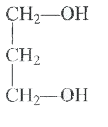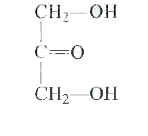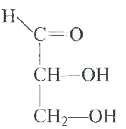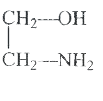Which of the following elements are oxidised when they react with dihydrogen?
Calcium
Sulphur
Lithium
Carbon
The correct Answer is:A, C
To determine which of the following elements are oxidized when they react with dihydrogen (H2), we need to analyze each element's reaction with H2 and identify if oxidation occurs.
1. Understanding Oxidation:
- Oxidation is defined as the loss of electrons by an element. When an element reacts with dihydrogen, if it loses electrons, it is said to be oxidized.
2. Identifying the Elements:
- The elements provided in the question are:
- Calcium (Ca)
- Sulfur (S)
- Lithium (Li)
- Carbon (C)
3. Analyzing Each Element's Reaction with Dihydrogen:
- Calcium (Ca):
- Calcium has 2 electrons in its outer shell. When it reacts with H2, it can lose these 2 electrons to form calcium hydride (CaH2).
- Reaction: Ca+H2→CaH2
- Here, calcium is oxidized as it loses 2 electrons.
- Sulfur (S):
- Sulfur typically gains electrons to form sulfide (S^2-). It does not lose electrons when reacting with H2.
- Reaction: S+H2 does not lead to oxidation of sulfur.
- Lithium (Li):
- Lithium has 1 electron in its outer shell. It can lose this 1 electron to form lithium hydride (LiH).
- Reaction: Li+H2→LiH
- Here, lithium is oxidized as it loses 1 electron.
- Carbon (C):
- Carbon can either gain or share electrons depending on its bonding. In the case of reacting with H2, it does not typically lose electrons to form a stable hydride.
- Reaction: C+H2 does not lead to oxidation of carbon.
4. Conclusion:
- From the analysis, we find that calcium (Ca) and lithium (Li) are oxidized when they react with dihydrogen. Therefore, the elements that are oxidized are Calcium (Ca) and Lithium (Li).
Final Answer:
- The elements that are oxidized when they react with dihydrogen are Calcium (Ca) and Lithium (Li).
- Oxidation is defined as the loss of electrons by an element. When an element reacts with dihydrogen, if it loses electrons, it is said to be oxidized.
- The elements provided in the question are:
- Calcium (Ca)
- Sulfur (S)
- Lithium (Li)
- Carbon (C)
- Calcium (Ca):
- Calcium has 2 electrons in its outer shell. When it reacts with H2, it can lose these 2 electrons to form calcium hydride (CaH2).
- Reaction: Ca+H2→CaH2
- Here, calcium is oxidized as it loses 2 electrons.
- Sulfur typically gains electrons to form sulfide (S^2-). It does not lose electrons when reacting with H2.
- Reaction: S+H2 does not lead to oxidation of sulfur.
- Lithium has 1 electron in its outer shell. It can lose this 1 electron to form lithium hydride (LiH).
- Reaction: Li+H2→LiH
- Here, lithium is oxidized as it loses 1 electron.
- Carbon can either gain or share electrons depending on its bonding. In the case of reacting with H2, it does not typically lose electrons to form a stable hydride.
- Reaction: C+H2 does not lead to oxidation of carbon.
- From the analysis, we find that calcium (Ca) and lithium (Li) are oxidized when they react with dihydrogen. Therefore, the elements that are oxidized are Calcium (Ca) and Lithium (Li).
- The elements that are oxidized when they react with dihydrogen are Calcium (Ca) and Lithium (Li).
Topper's Solved these Questions
- HYDROGEN, WATER AND HYDROGEN PEROXIDEBOOK - CENGAGE CHEMISTRY ENGLISHCHAPTER - HYDROGEN, WATER AND HYDROGEN PEROXIDEEXERCISE - Exercises (Single Correct)
71 Videos
- HYDROGEN, WATER AND HYDROGEN PEROXIDEBOOK - CENGAGE CHEMISTRY ENGLISHCHAPTER - HYDROGEN, WATER AND HYDROGEN PEROXIDEEXERCISE - Exercises (Assertion Reasoning)
17 Videos
- HYDROGEN, WATER AND HYDROGEN PEROXIDEBOOK - CENGAGE CHEMISTRY ENGLISHCHAPTER - HYDROGEN, WATER AND HYDROGEN PEROXIDEEXERCISE - Exercises (Linked Comprehension )
20 Videos
- GENERAL ORGANIC CHEMISTRYBOOK - CENGAGE CHEMISTRY ENGLISHCHAPTER - GENERAL ORGANIC CHEMISTRYEXERCISE - Analytical and Descriptive
1 Videos
- IONIC EQUILIBRIUMBOOK - CENGAGE CHEMISTRY ENGLISHCHAPTER - IONIC EQUILIBRIUMEXERCISE - Archives Subjective
28 Videos
Similar Questions
Knowledge Check
Which of the following compounds are oxidised by HIO4 ?
A B
B C
C D
D
Which of the following is not oxidised by MnO2 ?
View SolutionWhich of the following is not oxidised by O3?
View SolutionWhich of the following will not be oxidised by O3?
View SolutionWhich of the following can act as an oxidising agent ?
View SolutionWhich of the following can work as oxidising agent ?
View SolutionWhat happens when following elements are made to react with hydrogen.
State the conditions required, if any.
Nitrogen
View SolutionWhat happens when following elements are made to react with hydrogen.
State the conditions required, if any.
Chlorine
View Solution
